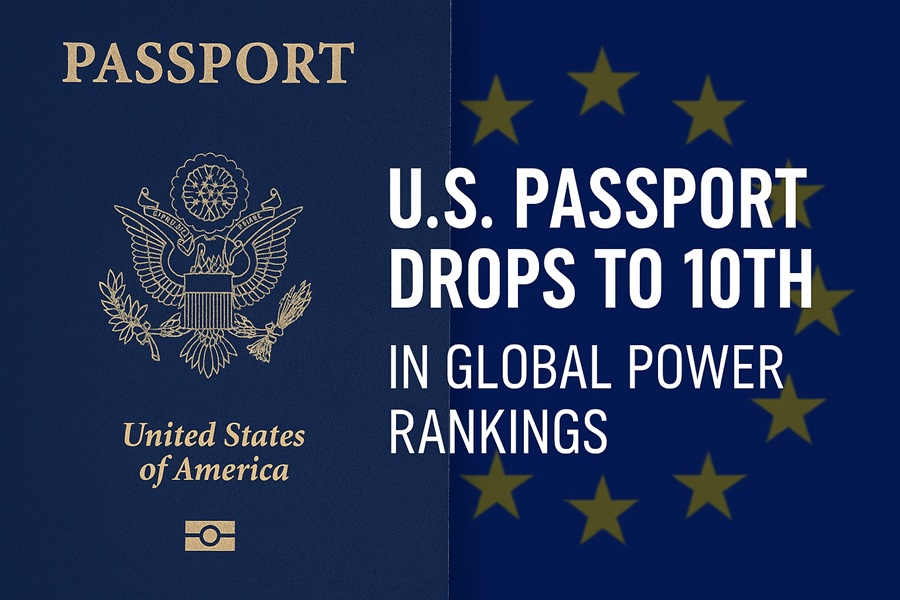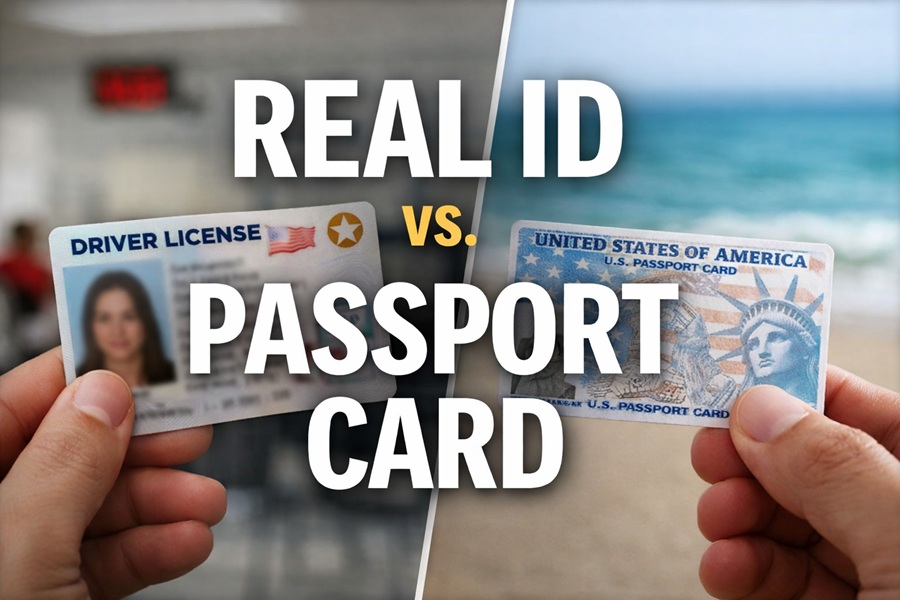US Passports have slipped further down the latest Henley Passport Power Rankings.
For the first time in its two-decade history, the U.S. passport has dropped out of the top nine in the Henley Passport Power Index. In 2025, it now shares the 10th position with Iceland and Lithuania, granting visa-free or visa-on-arrival access to only 182 countries and territories. This ranking marks a steep decline from the top spot last held in 2014, and from 6th–7th place in recent years.
What's Behind the Decline?
Experts attribute the U.S. slide to several policy factors and global shifts:
- Reducing momentum in forging new visa-free agreements with other nations
- Implementation of stricter visa screening measures, including a controversial $250 visa integrity fee
- Broad travel bans and tightened immigration protocols introduced in recent administrations.
By contrast, countries like the United Arab Emirates have climbed dramatically, rising from 42nd a decade ago to 8th in the current rankings before the U.S. slip. Meanwhile, economic powerhouses in Asia and Europe—including Singapore, Japan, South Korea, and multiple European Union nations—maintain stronger passport access due to proactive diplomatic engagement.
Where the U.S. Stands Now
- United States: 10th, visa-free access to 182 destinations
- Singapore: still #1, with access to 193 destinations
- Japan & South Korea: tie for 2nd, each allowing access to 190 destinations
- Many EU countries now occupy higher-ranking positions, including ties at 3rd (189 countries) and 4th (188 countries)
The index now lists 33 countries outranking the U.S. in global mobility—a reversal from just a few years ago, when the U.S. consistently ranked at or near the top.
Implications for Travelers
This shift has practical consequences:
- U.S. travelers may now need a visa where they previously did not, impacting trip scheduling, cost, and administrative preparation.
- Students and academic professionals may face more obstacles in international study and exchange programs due to lesser visa-free access.
- Business travelers may require additional time and paperwork for visa applications, extending timelines and complicating travel planning.
Final Words
While the U.S. passport remains among the most influential in the world, its decline to 10th place signals growing competition in international mobility. Travelers should anticipate more visa requirements, plan farther in advance, and monitor policies that affect travel freedom. For consistent updates on travel requirements by destination—and how they may impact U.S. passport holders—stick with trusted sources and plan accordingly.


